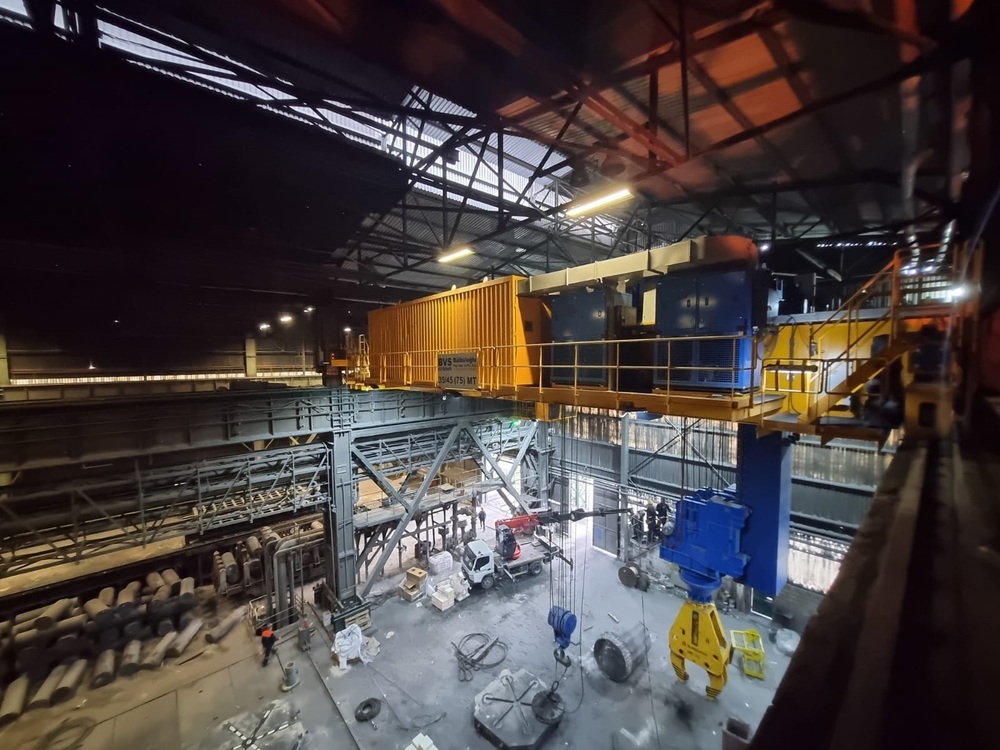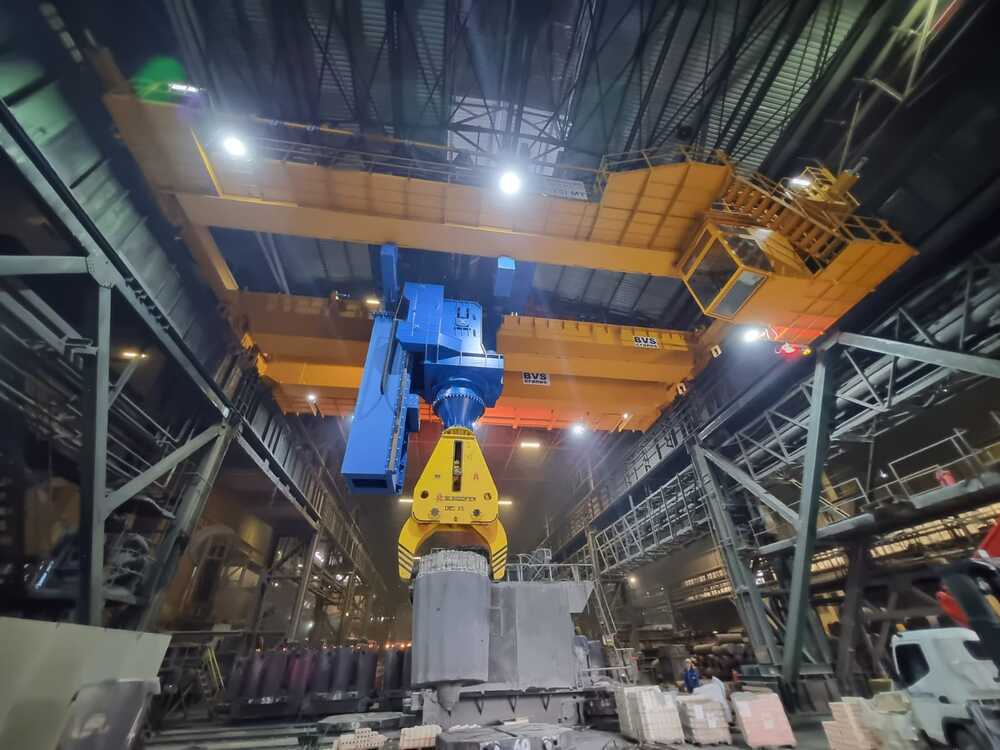BVS Cranes delivers ingot crane to steel manufacturer in Turkey
18 May 2023BVS Cranes has delivered a new ingot crane to a leading steel manufacturer in western Turkey.
Designed for an operating temperature of up to 65°C, the crane has two trolleys with a capacity of 35/75 tons and a lifting height of 11m, while the three beams span 20m – a design that BVS said is a compact structure, which brings “advantages in the hook approach distances of the trolleys and the movements they make together”.
Special bogie end-carriage systems suitable for the three-beam structure were also designed.
BVS added that the crane, which functions for more than 16 hours per day, features “a special automation system and an advanced electrical/electronic design architecture in terms of software and hardware”, as well as an automatic lubrication system and operator’s cab.
Ingot stripping cranes, also known as log stripping cranes, are specialised lifting machines used in the steelmaking industry to handle and manipulate steel ingots during the production process.
“They are critical in the production of qualified steel. Superior steel product quality in the metallurgical sector can only be ensured in plants equipped with high-specification cranes,” said Önder Topuz, BVS business development, marketing and brand manager.
After the molten steel is poured into the moulds and solidifies, an ingot stripping crane equipped with a special tong tool grips and extracts the ingots from the mould and transports them within the production facility. Such cranes have the capability to lift, rotate and manoeuvre the ingots as required.
An ingot is a piece of relatively pure material, usually metal, that is cast into a shape suitable for further processing. Ingots usually require a secondary shaping process, such as cold/hot working, cutting or milling to produce a useful final product. They also facilitate easier storage or transportation of raw materials. Steel, silver, and gold are all commonly cast into ingots for transport or manufacturing.
“There is an increasing demand for large-size forged steel ingots in the energy and transportation industries, for applications such as turbine shafts, trains, ships and windmills, and as raw material for making alloys, creating secondary cast, grain-free turbine blades, and fabricating large steel structural components, such as I-beams, rails for railroads and so forth,” said Topuz.
“The special steels used for such applications are produced through ingot casting.”
Emphasising his earlier point about the need for high-specification cranes for this steel production process, Topuz concluded: “However, as the size of the ingots increases, so does the propensity for the occurrence of quality issue in the ingots. The handling and smooth running of the processes and flawless operation of ingot handling gains utmost importance in order to overcome any problems in quality.
“Superior steel product quality in the metallurgical sector can only be secured in facilities equipped with cranes with superior features.”


